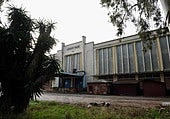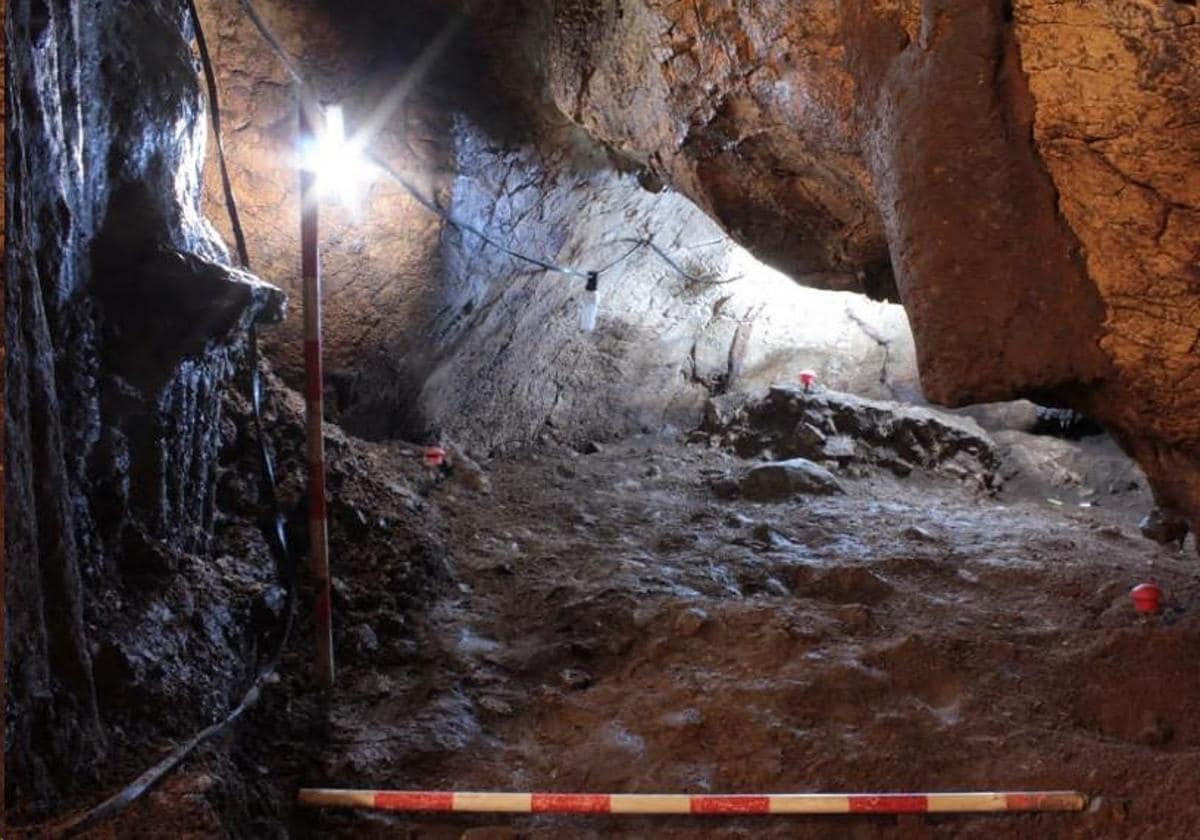First Case of Child Cannibalism Found in Alicante Mountains
Research Uncovers Children's Bones with Human Teeth Marks, a Selective Funerary Ritual from the Neolithic Era
Adrián Mazón
Alicante
Wednesday, 23 October 2024, 14:05
The team of archaeologists from the Alicante Provincial Council has discovered the first case of child cannibalism in the mountains of the province. The events date back 6,400 years, during the Neolithic era, and it could be a selective ritual linked to funerary mourning performed by the community of shepherds, farmers, and artisans of the past.
The bones, belonging to a minimum of eight skeletons including adults and children, have appeared in an internal gallery of the Cova del Randero in Pedreguer. This was used as a dump for domestic waste, which included a large number of processed animal bones alongside human fragments.
Archaeological research confirms a "selective cannibalism" due to the "clear evidence" of anthropic manipulation 'peri mortem' - when the bone was still fresh - shown by the remains found: two bones, a fragment of a child's jaw about six years old, and a cubitus of a perinatal of about 40 weeks of gestation.
The prehistorian and director of Mubag, Jorge Soler, who has also co-led - along with the archaeologist from the Provincial Council, Consuelo Roca de Togores, and Rafael Martínez Valle from IVCR+i - the interdisciplinary team in archaeology, anthropology, and archaeozoology, points out that cannibalism was a relatively common activity in the Neolithic. It was practiced in Europe and, in the case of the Iberian Peninsula, it is mainly concentrated in areas of Andalusia.
Thus, the first discovery of ritual cannibalism in the Levantine Peninsula in the context of the Neolithic has been made. The investigations allowed the identification in 2023 of various types of anthropic marks: cuts made with stone tools for disarticulation and skinning, flexion fractures to access the marrow, and human bites, in some cases causing the destruction of some parts of the bone.
The conclusions of the work, based on the determination in human bones of signs of disarticulation, skinning, or human teeth marks, of research developed within the framework of the MARQ Excavation and Archaeological Research Plan, were presented this Wednesday. Archaeologists from MARQ and taphonomy specialists from the Valencian Institute of Conservation, Restoration and Research (IVCR+i), as well as the president of the Provincial Council, Toni Pérez, the Culture Deputy, Juan de Dios Navarro, and the mayor of Pedreguer, Sergi Ferrús, have announced this discovery.
"Memory of a living and beloved being"
The archaeologist from the Provincial Council, Consuelo Roca de Togores, explained that the lack of signs of violence "in Randero the lack of signs of violence in any of the preserved bones, added to the fact that those with marks correspond to infant subjects, suggests their ingestion as a selective ritual act linked to funerary mourning, in a family context, consumed in what could be part of a funerary ritual, in a circular thought where death is projected into life, making the memory of a living and beloved being one's own."
The work at this site has been carried out over fourteen campaigns (2007 - 2021) of the MARQ Excavation Plan, with the support of the Pedreguer City Council, although the findings took place specifically in 2018 and laboratory research is still ongoing. Until now, the importance of the cave lay in having been excavated in the levels of the Middle Neolithic, offering much data regarding the management and organization of physical and temporal space.
Additionally, Jorge Soler added that, also in the Marina Alta region, other human bones with human bites and cut marks from the Cova de Santa Maira in Castell de Castells were published in 2017, which refer to the Mesolithic - hunters and gatherers - "all of which contributes to making the province of Alicante a reference in the field of prehistoric and paleoanthropological research."
Meanwhile, the president of the Provincial Council, Toni Pérez, highlighted that the institution "maintains its firm commitment to research through the annual excavation plan of MARQ and, in this case, we have had the opportunity to create alliances to go hand in hand with the Pedreguer City Council during years of work and to value the rich historical and cultural heritage that the Cova del Randero has."




